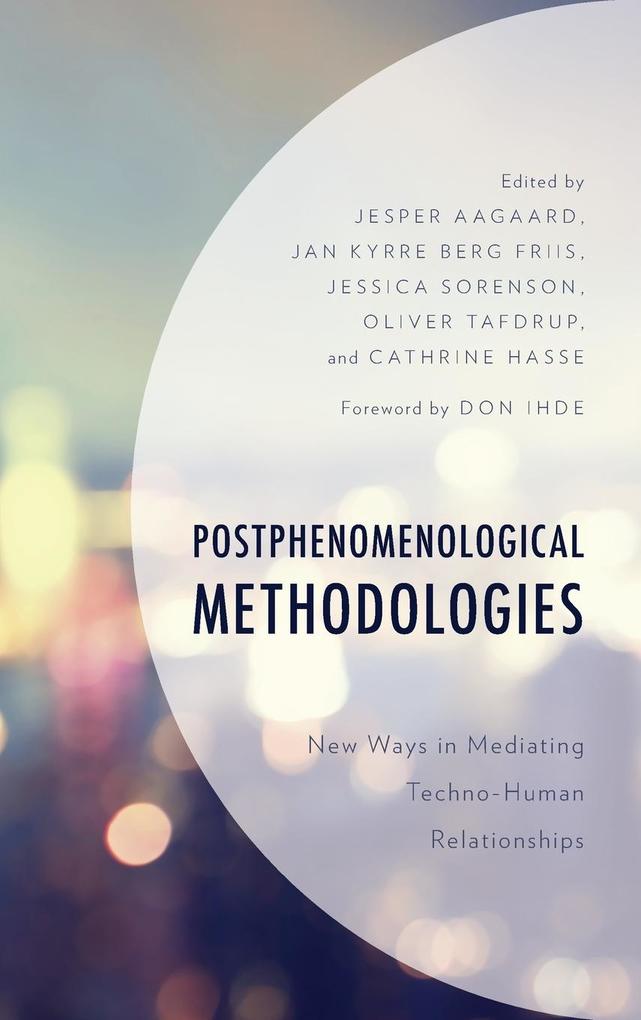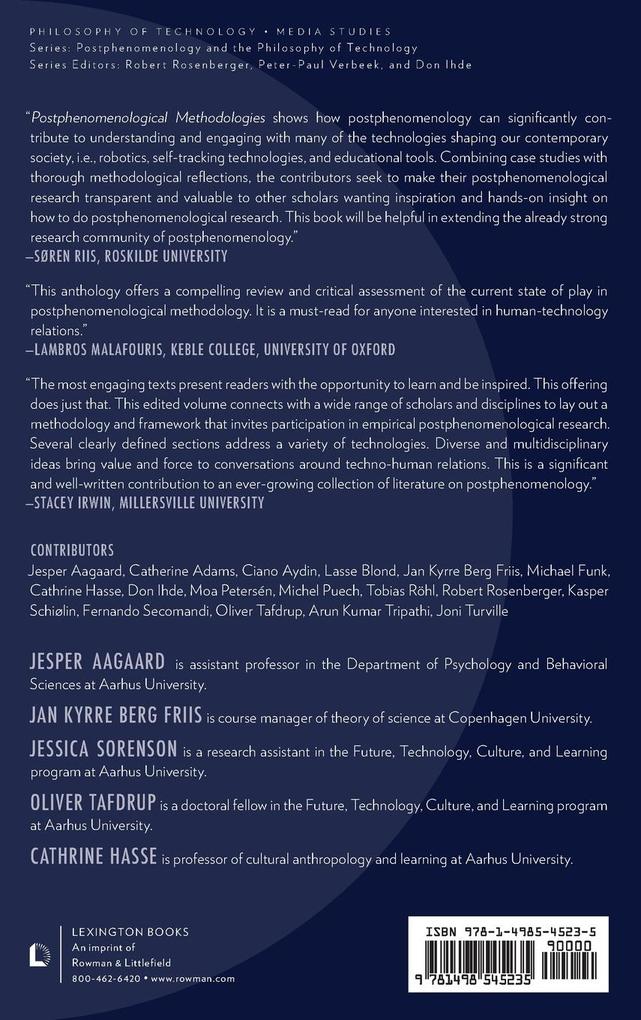This volume contributes to postphenomenological research into human-technology relations with essays reflecting on methodological issues through empirical studies of education, digital media, biohacking, health, robotics, and skateboarding. This work provides new perspectives that call for a comprehensive postphenomenological research methodology.
Inhaltsverzeichnis
Foreword - Don Ihde
Introduction - Jesper Aagaard, Jan Kyrre Berg Friis, Oliver Tafdrup & Cathrine Hasse
Part I: Educational Technologies
Chapter 1: Doing Postphenomenology in Education - Catherine Adams and Joni Turville
Chapter 2: Inviting and Interacting: Postphenomenology and the Microsociology of Education - Tobias Röhl
Chapter 3: Entering the Portal: Media Technologies and Experiential Transportation - Jesper Aagaard
Part II: Self-Tracking & Imaging Technologies
Chapter 4: Human Technology Relationships in the Digital Age: The Collapse of Metaphore in Biohacking - Moa Petersén
Chapter 5: Service Interfaces in Human Technology Relations: A Case Study of Self-Tracking Technologies - Fernando Secomandi
Chapter 6: From Camera Obscura to fMRI: How Brain Imaging Technologies Mediate Free Will - Ciano Aydin
Part III: Robotic Technologies
Chapter 7: Paleoanthropology and Social Robotics: Old and New Ways in Mediating Alerity Relations - Michael Funk
Chapter 8: Lost in Tra












